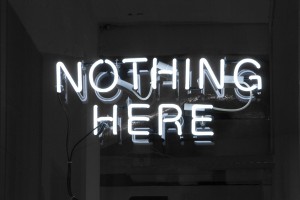by Michael Maharrey
 In and of itself, the federal government possesses no power.
In and of itself, the federal government possesses no power.
Zero.
Zilch.
Nada.
Most Americans will read my opening statement with raised eyebrows. Some will immediately dismiss it with a shrug, figuring the author some kind of nutcase. Others will simply shake their head in disbelief, or perhaps blow it off with an eye-roll.
In fact, most Americans view Washington D.C. as the font of all power. The final arbiter. The last word.
But the attitude held by the majority of Americans toward the federal government rests upon a gross misunderstanding of the nature of political power.
In truth, the federal government possess no power. At least none that it wasn’t granted by you and me.
You see, we the people ultimately possess all authority.
It was on that principle that our founding fathers rebelled against the rule of the British Crown, and it was upon that foundation that the United States was built.
Fundamental to the thinking of our founders was the idea that all human beings exist as autonomous moral agents. The Creator endows each of us with a free will, and He never forces his will upon humankind. Thus, no human being has the right to force her or his will on another person.
The writings of John Locke, an English philosopher and theologian, greatly influenced the founding generation. He explained it this way.
To understand political power right, and derive it from its original, we must consider what state all men are naturally in, and that is, a state of perfect freedom to order their actions and dispose of their possessions and persons, as they think fit, within the bounds of the law of nature; without asking leave, or depending on the will of any other man.
A state also of equality, wherein all the power and jurisdiction is reciprocal, no one having more than another; there being nothing more evident than that creatures of the same species and rank, promiscuously born to all the same advantages of nature, and the use of the same faculties, should also be equal one amongst the other without subordination or subjection; unless the Lord and Master of them all should, by any manifest declaration of his will, set one above another, and confer on him, by an evident and clear appointment, an undoubted right to dominion and sovereignty.
But in order to live together and prosper, people must cooperate. Human beings possess an innate desire to seek out the fellowship of others. This drives us to group together in political societies. It follows that some form of government becomes necessary, and that requires individuals submit to authority and create a mechanism to protect life, property and individual liberty.
Consent is the key to understanding the scope of governmental power. Each individual in a political society consents, of his own free will, to be governed. Citizens remove themselves from the state of nature (perfect freedom) and willingly submit to the authority of government.
Thomas Jefferson summed up these ideas in two sentences of the Declaration of Independence.
We hold these truths to be self-evident, that all men are created equal, that they are endowed by their Creator with certain unalienable Rights, that among these are Life, Liberty and the pursuit of Happiness. That to secure these rights, Governments are instituted among Men, deriving their just powers from the consent of the governed…
The Constitution of the United States is simply a legal document granting limited, enumerated power to a federal government. But ultimately, the power rests with the people. Without the grant, the government has no power. In fact, it ceases to exist. We willingly cede a small bit of our perfect liberty to a general government – in much the same way one person grants another the legal authority to handle their affairs through a power of attorney.
The wording of the preamble makes this clear. Constitutional scholar Robert Natelson points out that the framers followed a common practice in royal charters, identifying the grantor using large majestic letters.
We the People of the United States…do ordain and establish this Constitution for the United States of America.
And power we the people grant, we the people can take away. The Declaration of Independence continues:
That whenever any Form of Government becomes destructive of these ends, it is the Right of the People to alter or to abolish it, and to institute new Government, laying its foundation on such principles and organizing its powers in such form, as to them shall seem most likely to effect their Safety and Happiness.
Too many Americans place government in the ultimate place of authority, assuming it decides what we may or may not do. Too many Americans treat government as an almost omnipotent entity. Too many Americans turn and face Washington D.C. with awed reverence.
The veneration is misplaced.
In truth, we – the American people – reserve the bulk of power to ourselves.
The federal government  was intended to exist and operate bound by the Constitution, a grant of limited authority, constraining federal power to specific spheres, limiting it to specific functions, and defining its scope and role.
And as the grantor of all power and authority, we the people must insist that the federal government stay within its properly defined powers and role.
- Thomas Jefferson’s Warnings and Predictions about the Dangers of Money-Printing - April 18, 2024
- Utah’s Step-By-Step Strategy in Support of Sound Money - April 9, 2024
- Utah’s Step-By-Step Strategy Against the Surveillance State - April 1, 2024

